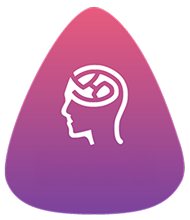Read a viewpoint that challenges your target industry, summarize its strongest argument in one sentence.
Ask yourself: “What’s another way to see this hiring requirement?”, look for equivalencies you can prove.
Change one habit today, alter the order, method, or tool you usually use for applications.
Read an article from outside your background, note one idea you could apply in your new field.
Challenge a default choice in a low-stakes task, try the opposite to stretch flexibility.
Use the phrase “That’s interesting, tell me more” when someone challenges your background.
Journal about when rigid thinking limited transferable skills, what could openness have created instead?
Reflect on your reaction to new tools, do you resist, explore, or experiment with possibilities?
Describe adapting to a surprise requirement, what thinking helped you shift perspective?
Write about an assumption you outgrew while reskilling, what finally changed your mind?
List three recent challenges, did you explore multiple angles or stick to one?
Explore how curiosity shows up in learning, when do you ask “what if,” and when do you shut down?
Share a new idea with a peer group that challenges usual thinking, invite discussion, not agreement.
Switch roles in a project discussion, see it from another’s perspective and adjust your approach.
Do something intellectually stretching this week, then reflect on the lesson.
Pick a known skill and explain it as if you were a beginner, build adaptability.
Use a “yes, and” response in disagreement, build instead of block.
Ask peers to challenge your ideas, respond with curiosity.
Ask someone to flag when you seem rigid in thinking, what behaviors signal that to them?
Share a recent mindset shift you had about reskilling, ask how a peer has reframed their thinking.
Ask a peer for feedback on your flexibility in brainstorming, do you open or close down ideas?
Start a conversation with someone outside your field, ask how they approach change in their role.
Share how you processed a tough decision, ask where you might have been more open.
Create a “blind spot swap” with a peer, share one thing you both tend to overlook.
Reframe “That’s not my background” as “What if I try it once to see what I learn?”
Instead of “That won’t work for me,” ask: “What conditions could make this work?”
Recast uncertainty as optionality, more possible directions, not more problems.
When stuck, say: “Let’s flip it, assume the opposite is true”, see what new ideas appear.
See conflicting opinions as information, what perspective might they highlight?
Reframe mistakes as data points in learning, adjust and retest your approach.
Notice when you instantly dismiss a new option, what bias or fear might be driving that reaction?
Track your inner response when challenged, do you feel curious, threatened, or indifferent?
Observe how you respond to surprises, freeze, pivot, or adapt, what’s your first instinct?
Watch someone adapt rapidly in a new role, what thoughts guide their flexibility?
Observe meetings where new ideas thrive, what mindset traits are visible there?
Track your language in uncertain moments, do you ask “what if,” or declare “it won’t work”?


 Give Feedback
Give Feedback
